Central African Republic
The Central African Republic is in a desperate humanitarian situation. More than half of the nearly five million inhabitants need help.
On Wednesday, the country was on the agenda of the United Nations Security Council, where Angola's President João Lourenço spoke.
Euronews spoke to head of the UN Office for the Coordination of Humanitarian Action in the Central African Republic, Vedaste Kalima.
"More than half of the population is in food shortage, with 1.8 million in acute humanitarian need, and the situation has completely deteriorated since late December following the post-election violence and subsequent clashes between the regular army and the various armed groups, which has created new internal displacements. Whether it is the Armed Forces or the "blue helmets", Kalima said.
He added that: ‘’We ask that the existing means be reinforced to guarantee security, and not only the security of the population, because the population needs this security, especially the populations weakened by this violence. They also need to be assisted by those who provide assistance, the humanitarians.’’
Angola chairs the International Conference for the Great Lakes Region. It has hosted two summits of heads of state and governments in 2021 to discuss the situation and seek a regional solution.
President João Lourenço travelled to the UN headquarters to share the vision of African countries with the Security Council on Wednesday.
The day before, he met with Secretary-General António Guterres. He explained to him why the countries of the region are calling for the lifting of the arms embargo on the Bangui government, in force until the end of July.
Africa conflict management expert Konté Moenu sums up the position of leaders of the Great Lakes countries.
"The legitimately elected government, which has already taken office, has the duty to defend civilians, has the duty to protect the populations, so this government needs means, needs weapons, to defend civilians and stand up to these armed groups, while negotiations take place to find a negotiated solution", Moenu said.
The Angolan president defended the end of the arms embargo. He stressed that now is the right time for the CAR to form its troops, since it has the presence of the "blue helmets" and other foreign forces.
The current mandate of the UN soldiers ends in November.




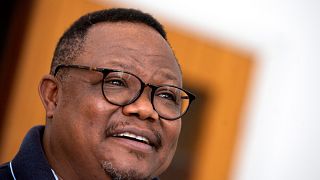
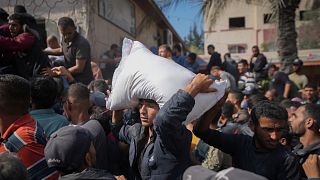

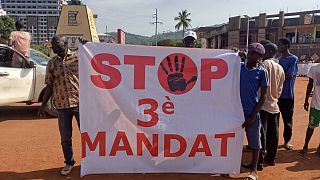
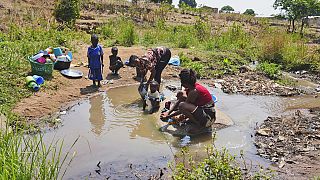
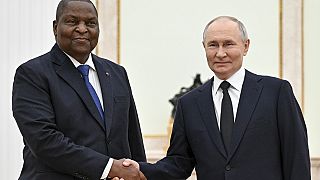


01:46
UN officials warn of worsening crisis in eastern DRC
Go to video
DR Congo and M23 rebels to hold direct talks after months of fighting
Go to video
France assumes the presidency of the United Nations Security Council
Go to video
Angola ends mediation role in the DRC-Rwanda conflict amid failed talk
02:32
Can the Doha meeting end war in Congo's east?
02:31
Angola urges ceasefire ahead of DRC-M23 peace talks